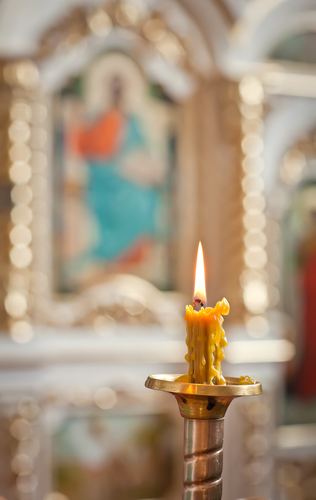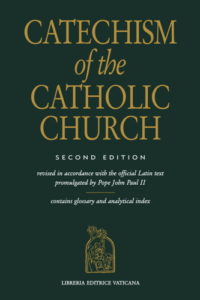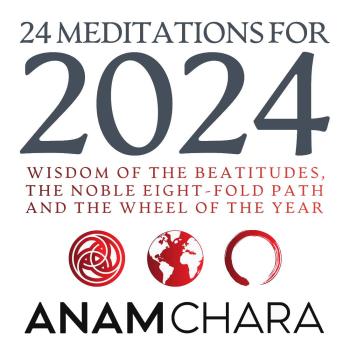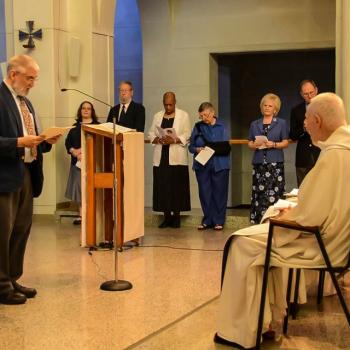
What is contemplation? Unfortunately, answering this question is tricky — for contemplation is like some other words in the English language, such as love or success or happiness. In other words, different people use it to mean different things.
Recently a reader named Daniel sent me this message:
I’ve been gradually learning about contemplative spirituality for a couple of years now. Throughout this journey I’ve continually wondered how “contemplation” should be defined. I’ve discovered that it seems to mean different things in different contexts. Nevertheless, I’ve often felt confused after contemplating the meaning of contemplation. Anyways, the purpose of my message is I’m wondering if you might be able to give me some of your thoughts/feedback/suggestions on the following definitions. Anything would be welcomed!
Daniel went on to offer his thoughts about defining contemplation/contemplative/to contemplate:
As a noun: “Contemplation is personal, experiential knowledge of God’s love and presence.”
As an adjective: “Contemplative activities and disciplines are those that aim to foster a personal, experiential knowledge of God’s love and presence.”
As a verb: “To contemplate, as a way of being, is to live with a personal, experiential awareness of God’s love and presence.”
Here’s how I responded to Daniel:
I think it’s helpful to look at the etymology of word when parsing out its meaning. Contemplation comes from the Latin word contemplari which means “to gaze, observe, behold.” So contemplation has it its heart the sense of beholding God’s presence. There is both a visionary dimension to this (seeing) but also an embodied dimension (finding God within). That’s why I think the word “beholding” is so useful, since it implies both seeing and “holding” God.
I would encourage you to avoid the word experience. It has come to mean something very narcissistic in our culture, reducing God to an object of our feelings or sensations or even imagination.
I could have a very powerful (and entirely self- generated) “experience” of God, complete with mystical visions and exalted feelings, but it could leave me utterly un-transformed. Meanwhile, someone like Mother Teresa went through life with little if any conscious experience of God, yet she changed the world with her selfless love and service to the poorest of the poor. So which one of us is the true mystic?
This begs the question: what if you don’t have this kind of an “experience” of God? What if your time of contemplative is simply filled with restlessness, or boredom, or distracted thoughts? Is that “failed” contemplation? Or is God operating at a level below the threshold of our conscious awareness?
Put another way: is the goal of contemplation for me to experience God, or is it for God to experience me? After all, who is the active subject here, and who is the receptive object?
What does it mean “to experience” something anyway? Many people can’t define it, but when you get right down to it the word is often used as a way to subtly undermine the presence of God that comes to us through other people.
People say, “I don’t want dogma, I want to experience God directly.” But what is dogma, other than the collective wisdom of all the lovers of God, over many generations, who have gone before us? Why should I be so quick to throw all that out, just because (living in an entertainment-obsessed culture like we do) I want God to “entertain” me directly?
So, I would caution against relying too much on “experience” as a foundation for contemplation. Instead, I’d suggest defining it in terms of waiting, of loving, of trusting, of obeying. Also silence. We contemplate God when we trustingly await God’s leading in our lives, resting in the silence found within our hearts, which is to say within our own bodies (beneath and in between all our restless thoughts and feelings), seeking to obey God’s word for us wherever it may come from.
So you see, contemplation really invites us to a place much deeper than mere experience. But we can’t find that place unless we befriend silence, unknowing, trust, and a willingness to wait in the darkness of our lack of control over God.
The Best Definition of Contemplation That I Have Found
 For what it’s worth, I find the definition of contemplation in the Catholic Catechism to be useful:
For what it’s worth, I find the definition of contemplation in the Catholic Catechism to be useful:
CONTEMPLATION: A form of wordless prayer in which mind and heart focus on God’s greatness and goodness in affective, loving adoration; to look on Jesus and the mysteries of his life with faith and love.
You’ll notice that it is consistent with the etymology of the word, and the “e” word doesn’t appear at all! Our task in contemplation is to pray in wordless (silent) love, adoration and beholding — recognizing that God comes to us in many ways, often at a level deeper than the threshold of our conscious awareness.
I hope this is helpful. Please let me know if you have further questions.
A few days later, Daniel replied:
I think my confusion over the meaning of contemplation stems from the fact that in some of what I read the term is used to refer to a subjective mystical experience, whereas in other instances it is used to refer to the act of gazing, beholding, and waiting upon God, as you explained.
Understanding the etymology is very helpful. So if “contemplation” or “contemplative prayer” is a spiritual disciple through which one seeks to silently behold and gaze upon God, then would you say that “contemplative spirituality” or “contemplative life” is a way of being through which one seeks to behold God within oneself, others, and all of creation and in every circumstance?
What still confuses me sometimes is the meaning of “contemplative” when it is applied to various things as an adjective (like prayer, disciplines, spirituality, life, Christianity, etc.).
I like your examples (contemplative spirituality, contemplative life). I think you’ve grasped the definition that I have found most useful — which is the definition found in the Catechism.
But as you yourself point out, since contemplation “seems to mean different things in different contexts” — in other words, people use the word in a variety of ways — naturally the adjective (contemplative) will have a similar “fuzzy” meaning. As I said above, it’s a word like love or happiness or success. Different people mean different things when they use these words, so we always have to try to discern exactly what they mean.
If you have an engineer’s mind (or simply prefer concrete ways of thinking), this will be an ongoing source of annoyance for you. My apologies. The way I deal with it is this: having found a definition that I think is both useful and reasonably accurate (i.e., the Catechism definition), that has become my “default” way of understanding contemplation/contemplative/to contemplate.
But knowing that this is one of those words that gets used in a variety of different ways, whenever I encounter these words, either in writing or in speaking with someone, I recognize that I have to discern what the author/speaker means by the word, which may not exactly line up with my understanding. That adds an extra challenge to the task of communication. But it’s an extra step worth taking, for the purpose of continuing to grow in my own spiritual life.
I’m sorry I can’t be any more definitive than this. But I hope this is at least somewhat helpful. My bottom line: the best definition I’ve ever found for contemplation is the Catechism definition, so when I use the word, I use it with that definition in mind. But when I hear or read others using it, I recognize that they may have a different understanding of the concept, so I make the effort to comprehend where they’re coming from.
God bless you on your continued journey.
Enjoy reading this blog?
Click here to become a patron.














